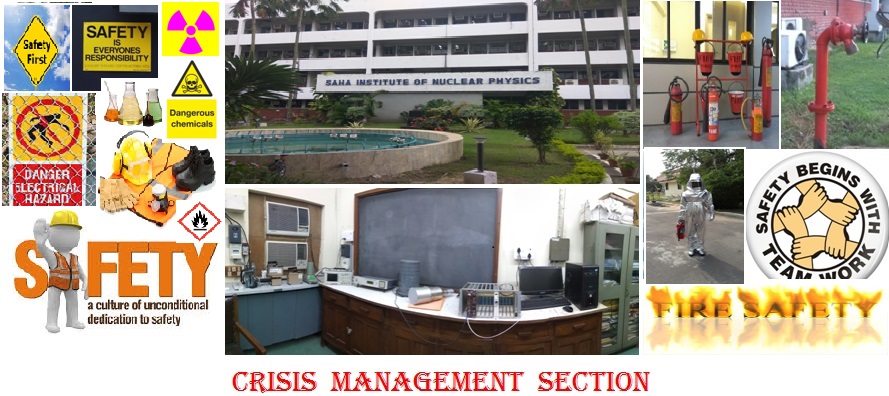SAHA INSTITUTE OF NUCLEAR PHYSICS
Department of Atomic Energy, Govt. of India

Safety is all about being protected against physical, occupational, or other types or consequences of failure, damage, accidents or any other event which is undesirable. This can take the form of being protected from the event or from exposure to something that causes health or economical losses. It is important to realize that safety is relative. Eliminating all risks would be extremely difficult and very expensive. A safe situation is one where risks of injury or hazard are low and manageable.
In any facility handling ionizing radiation it should be ensured that regulatory limit for radiation exposure is complied with and release of radioactive material to the environment is prevented.
Ensuring safety
against all types of accidents and hazards – exposure to radiation, fire, biohazard, electrical and mechanical accidents - is given a high priority in the Institute. However no system can be effective without the cooperation of the people involved in the system. Safety is not only the sole responsibility of safety personnel or firemen but it is the prime responsibility of all the members of the institute.
The Crisis Management Section works for ensuring safety of the institute and its members. The broad charter of the duties is as under:a) Surveillance for Campus Fire Safety
b) Surveillance for Campus Fire Safety
c) Availability, maintenance and upkeep of all safety devices
d) Safety related Database and Incident/accident logs
e) Training and awareness
f) Record keeping
g) Maintain liaison with local authorities like fire and emergency services.
h) Safety Drills
i) Maintenance of records for outsourced fire safety personnel
j) Tasking for the outsourced fire safety personnel
k) General Surveillance